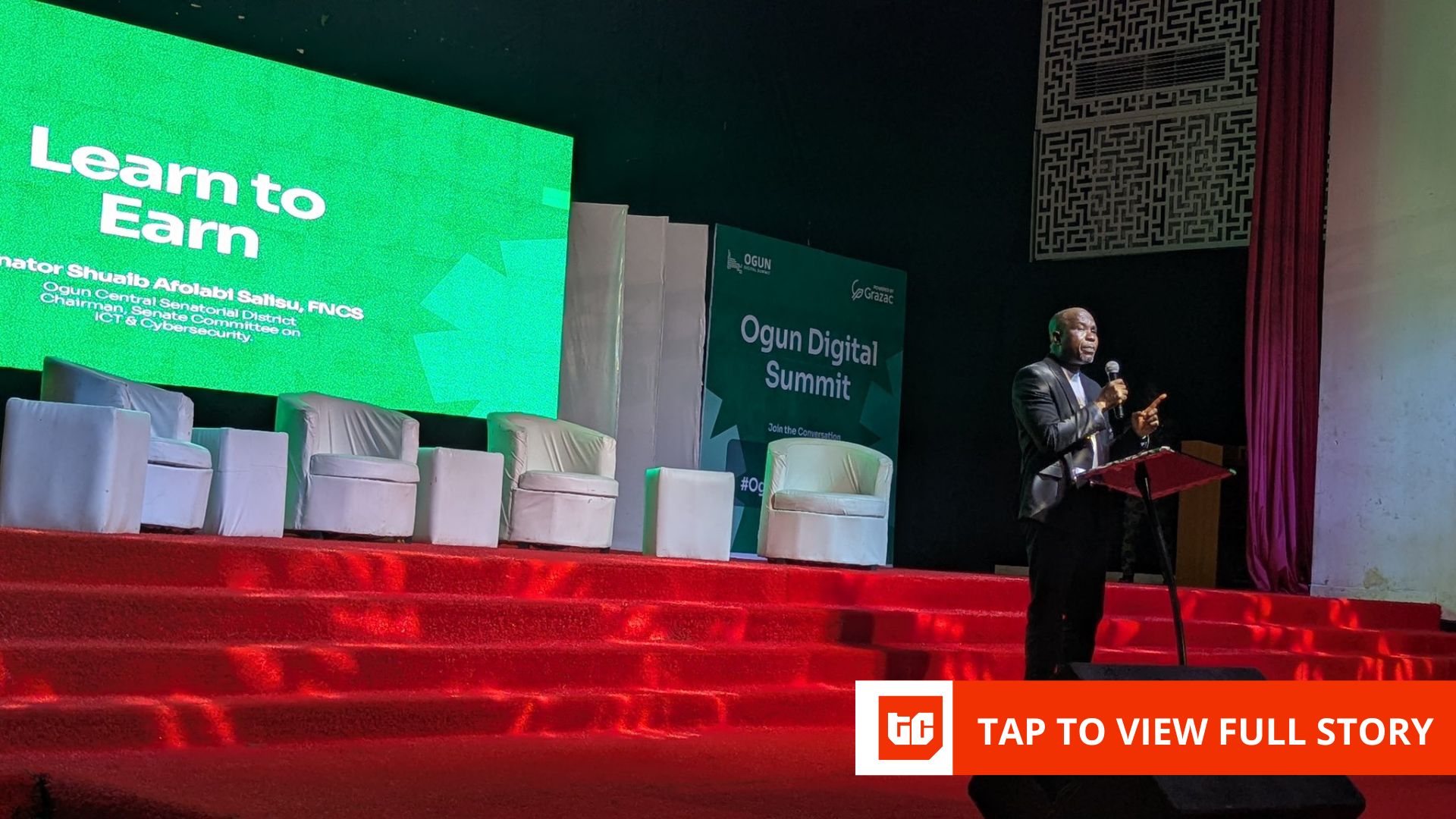At the 2025 Ogun Digital Summit on November 20, one message echoed loudly through the hall: build here, stay here. More than a slogan, it captured a long-standing tension in the state’s relationship with Nigeria’s tech ecosystem. For years, founders have built their early teams in Ogun, southwest Nigeria, only to move their headquarters, jobs, and economic value to neighbouring Lagos once it’s time to scale.
Summit convener, Victor Adeleye, opened with a reminder of how the journey began in 2020. “We wanted Ogun to leverage its closeness to Lagos and become an innovation hub,” he said. “But when founders build, they leave. We want people to build more and stay here. We have more talent in this state than many realise.” More than 5,000 tech talents have passed through the digital summit, but this year’s focus has shifted to the people who create jobs: founders. The organisers now want to help entrepreneurs answer three core questions: How do I build? What do I build? And what problem am I solving?
Ogun’s talent argument and why founders should stay
Ogun State’s pitch is that it has the talent, institutions, and youth population to become Nigeria’s digital capital. As Deputy Governor Noimot Salako-Oyedele noted, the summit has consistently shown that the state’s greatest asset is its people. “Digital talent development and enabling founders must come first,” she said.
Ogun’s 4.3 million young people—out of a population of about 7 million—spread across cities like Abeokuta, Ilaro, Ijebu Ode, and Sagamu, give the state a real opportunity to build a homegrown innovation ecosystem that can rival Lagos. But talent on its own isn’t enough to keep founders from moving elsewhere.
Policy as infrastructure
For Ayodeji Odusote, Special Adviser on Digital Technology and Transformation to the Minister of Finance, the missing piece is policy. “Policy defines the DNA of your environment,” he said. “It shapes how outsiders perceive your space.”
He argued that well-designed policy can lock in value for young people. Drawing from his experience, he described how classifying procurement opportunities within the Ogun State government—some reserved specifically for young innovators—created a clear pathway from school to industry. Without such protections, he said, young people simply cannot compete with established companies, no matter how skilled they are.
Odusote urged Ogun to adopt a similar approach if it truly wants to retain its tech talent. “We talk about pipelines, but young people leave because the environment doesn’t create a road for them to stay.”
He also pushed for integrating digital learning directly into schools. Rather than building new ICT hubs—expensive and often inaccessible—he said existing educational institutions should become innovation centres. “Schools already have a captive market of young, committed people. Let them learn where they already are.”
Abiola Bakare, Special Adviser on Finance to the Governor, reinforced this point. Ogun’s proximity to Lagos, he said, should make it the primary engine for the commercial capital’s digital talent. “I tell people, this should be the digital capital of the country.”
The 3MTT pipeline and the mindset gap
The summit also spotlighted Nigeria’s 3MTT initiative to train three million tech talents. Ogun’s coordinators shared both wins and frustrations.
Interest is high—but expectations are often misaligned. “Some think 3MTT means the government will give them a million naira,” said Oluwaseun Dabiri, Ogun State Lead for the programme. “After two weeks, a cohort of 1,000 can drop to 200 because the motivation was wrong.”
Many trainees had assumed the programme came with cash support. When that didn’t happen, they left. To fix this, Dabiri’s team is running awareness campaigns across local governments and partnering with training hubs to make digital education more accessible.
Dabiri also launched a “Beyond Learning” series—sessions that help trainees turn skills into real projects with product-market fit. He personally reviews their accountable projects “to ensure that those who can build viable products have a path to grow.”
The big question: how does Ogun stop its talent migration?
Inevitably, the conversation landed on brain drain. With programmes like the UK Tech Talent Visa actively recruiting Nigerian developers, states like Ogun face steep competition. Panellists agreed that only a blend of incentives, meaningful work, policy protection, and a strong ecosystem can convince founders to stay.
One participant put it bluntly: “We are training people for the global market, but we haven’t built a local market where they can thrive.”
Senator Shuaib Afolabi Salisu, representing Ogun Central and sponsor of Nigeria’s National Digital Economy Bill, added that the bill should be signed within the next two weeks. If implemented well, it could significantly accelerate digital transformation nationwide. But even he acknowledged that policies only matter when people know they exist—and in Nigeria, awareness remains painfully low.









